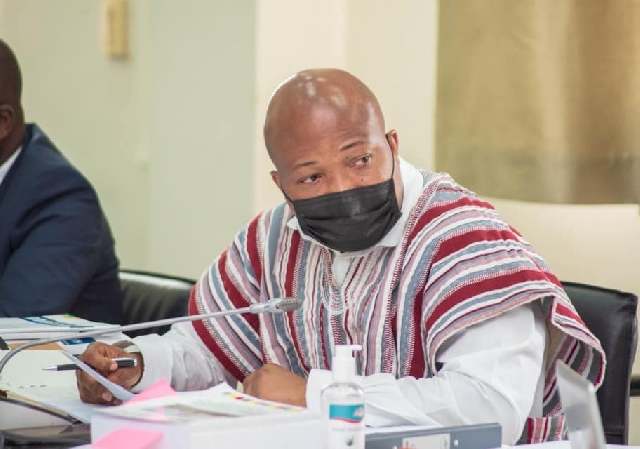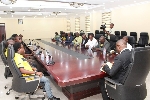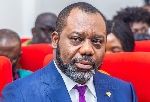Ablakwa secures paid internships for 20 medical student evacuees from Ukraine
 Samuel Okudzeto Ablakwa
Samuel Okudzeto Ablakwa
The Member of Parliament for North Tongu, Mr Samuel Okudzeto Ablakwa, has announced that he has successfully negotiated for paid internship opportunities for 20 Ghanaian medical student evacuees from Ukraine at the Battor Catholic Hospital in his constituency.
The package also includes support in securing accommodation and feeding.
Mr Ablakwa said all interested Ghanaian medical students who escaped the ongoing war must apply directly to the Medical Superintendent of the Battor Catholic Hospital from today, Monday, 28 March 2022.
He noted that the hospital will strictly vet and screen all suitable applicants without any interference.
In a Facebook post, he stated that he was glad “this win-win initiative would offer our celebrated hospital additional hands to improve health delivery in my constituency, and also help in the interim to provide practical skills for our compatriots who have been through hell and are now considering their future options.”
The lawmaker suggested it would be great to see other health facilities replicate this North Tongu/Battor Catholic Hospital initiative.
The Ghanaian medical students were forced to return to Ghana following Russia’s evasion of Ukraine over Ukraine’s decision to join NATO.
Trending News

Defence Minister engages NDC Greater Accra ward coordinators
10:14
Ato Forson elected Chairman of ECOWAS Bank for Investment and Development
02:30
Give peace a chance – Mpraeso MP to Bawku youth
09:00
Minority raises alarm over President’s petition to remove Chief Justice
10:06
100 newly posted teachers picket GES over seven-month salary arrears
17:16
C/R: Fire destroys five shops at Kasoa- Columba junction; items worth millions lost
08:37
Agongo: I don’t womanise, gamble, drink, smoke; my money is for helping the poor – that gives me joy
03:57
Minority Caucus donates GHS 200,000 to victims of Adum Blue Light market fire
15:01
Bawku crisis: Exercise restraint and allow Otumfuo's peace process to come to its logical conclusion - Ayariga to residents
08:20
'I'm not running for 2028' – NAPO
18:33




